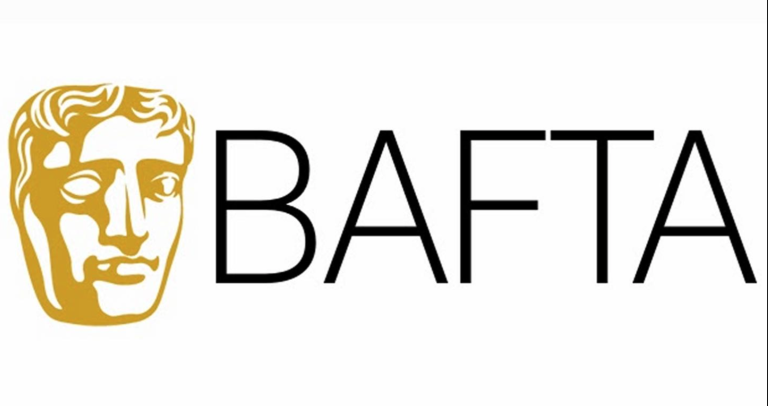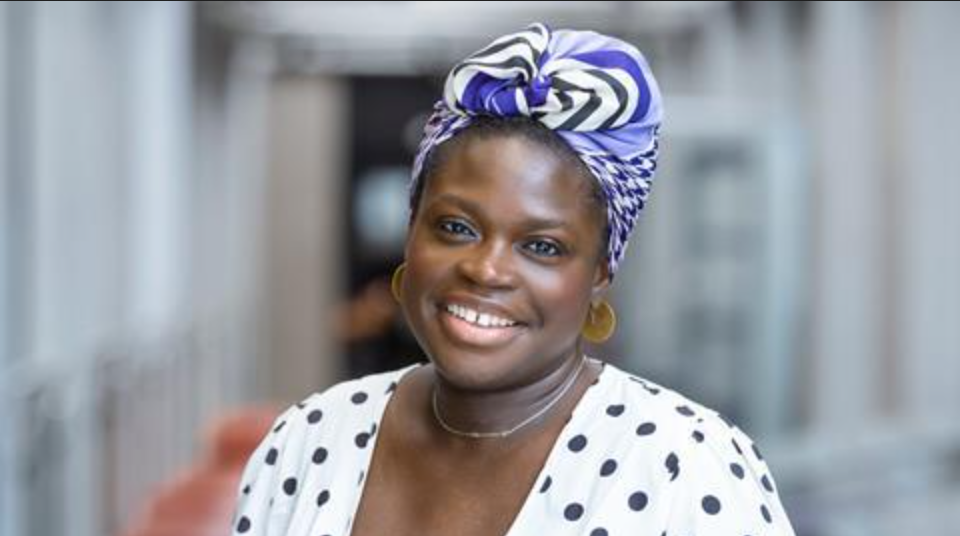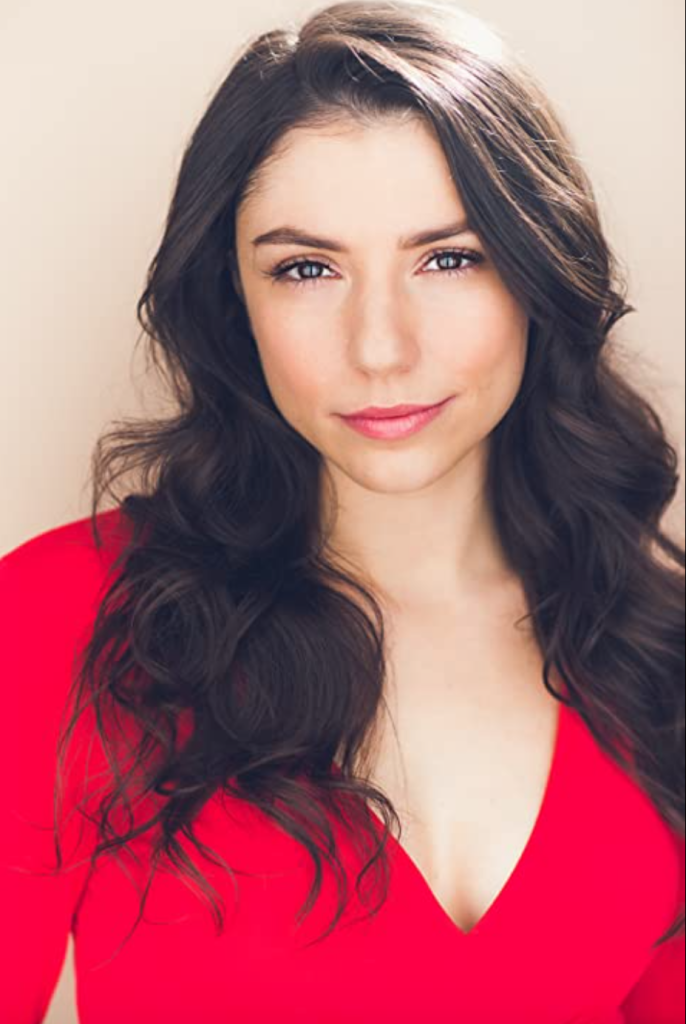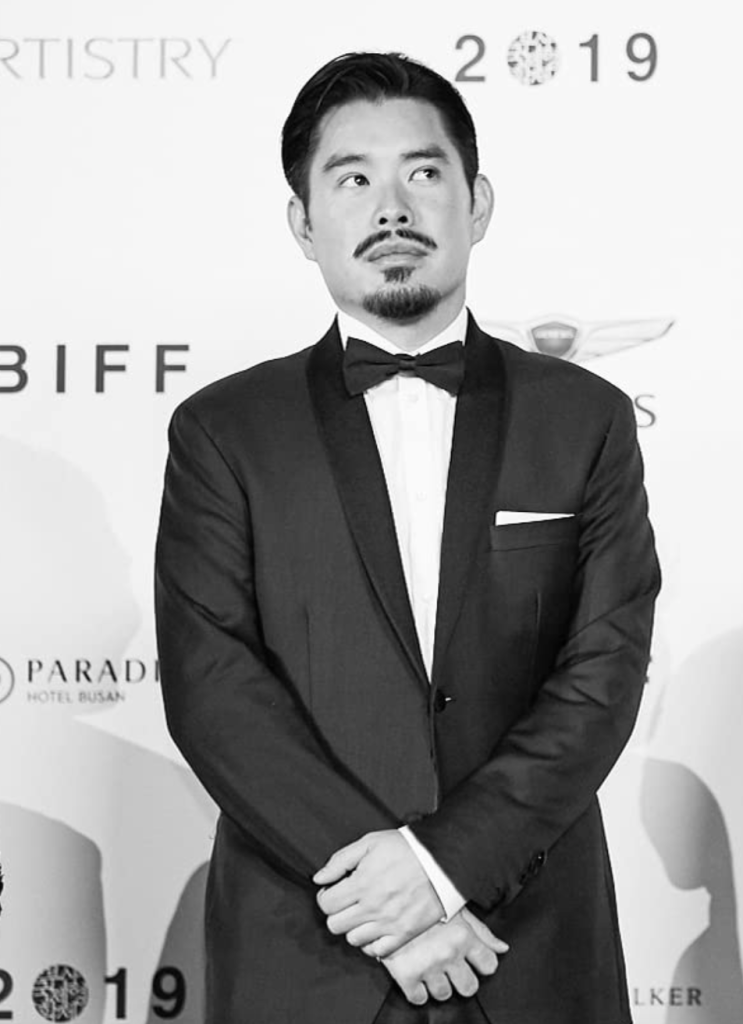
A diverse new group of up-and-coming, must-watch creatives from the film, television and gaming communities in the UK and U.S. have been chosen as recipients for this year’s BAFTA Breakthrough. The program was created to provide mentorship, professional development and global networking opportunities from BAFTA, with the support of Netflix.
This year’s BAFTA Breakthrough includes UK-based casting director, Aisha Bywaters, who’s known for working on the British musical sitcom, We Are Lady Parts. U.S filmmakers, Dominique Nieve, who played the title character and wrote, directed and produced the short film, Our Lady Lupe, and cinematographer Bao Nguyen, who helmed and produced the documentary, Be Water, were also chosen for this year’s program.
The 36 Breakthrough recipients for this year’s BAFTA Breakthrough were selected by a cross-industry global jury of industry experts, including Afua Hirsch, Niamh Algar, Tim Renkow, Rutina Wesley, Ade Rawcliffe, Bruce Miller and Colin Trevorrow. They were joined by Breakthrough Jury Chairs Ade Rawcliffe, Maria Ishak and Karl Stewart.
Netflix supports BAFTA Breakthrough in the UK, US and India, and provides integral support in the global expansion. BAFTA and Netflix share a joint vision to celebrate and provide opportunities for emerging talent around the world, bringing together international communities across global networks, in order to develop and support stories and voices from different cultures. BAFTA will work with local industry practitioners and cultural bodies in each territory to provide bespoke support within each region’s unique landscape.
BAFTA Breakthrough, which launched globally in May 2020, is BAFTA’s flagship new talent initiative that identifies and supports the next generation of creative talent. The initiative, which was previously known as Breakthrough Brits, has been running in the UK since 2013 and in the U.S. and India since the global expansion last year. As the main supporting partner for the program’s third year, Netflix continues to provide integral support in its global expansion.

Bywaters generously took the time recently to participate in an individual Zoom interview, and Nieves and Nguyen generously took the time to give a joint Zoom interview, to discuss their experiences being chosen as one of this year’s Breakthrough Recipients.
Q: Aisha, you have been chosen as one of this year’s UK Breakthrough Recipients, as part of the BAFTA Breakthrough program. What does it mean to you to be one of this year’s recipients?
AB: It was a really great thing for me; it was nice to know that I’ve been accepted into the program. I applied, hoping that I would be, but not knowing, obviously, that it would definitely happen. It’s a nice honor.
BAFTA’s an organization that I really look up to in this country. So for them to think I’m someone to look out for, and I’m doing something in the industry that’s interesting, is a great honor. So I’m really excited about the opportunity.
Q: Dominique and Bao, you have been selected to be two of this year’s U.S. Breakthrough Recipients, as part of the BAFTA Breakthrough program. How did you become involved in the program?
BN: I heard about the BAFTA program through a friend of mine who’s based in both London and L.A. After she told me about the program, I looked it up and was amazed.
I had never heard about it before, because as an American, I was caught up in the American organizations. I hadn’t realized that there were also so many amazing organizations around the world, with BAFTA being one of the top ones.
Once I realized who was in the UK class before, I knew they were amazing and doing amazing work. So I immediately applied.
But it was so strange to write so much about myself; I felt like I was writing a college application again. But it’s nice to sometimes reflect back on your journey as a filmmaker. This experience has been rewarding so far, and I’m really grateful to be a part of the program.
DN: I run a program called the Read Latinx Writers Initiative, which is a mentorship program for Latinx TV writers. One of the mentors in our program was actually a BAFTA Breakthrough fellow the previous year.
So I had seen him doing some interviews with influential artists, which is something I had started doing myself. So after seeing his overall experience with the BAFTA Breakthrough program, I was inspired to apply for this year’s program.
I’m also part of another organization, Women of Color Unite, and another member of that group posted about the application for the BAFTA Breakthrough program. I thought, I really should throw myself in there, shouldn’t I? I just had my first project on television, so I thought, it’s time to apply!
Q: Dominique and Bao, what does it mean to you both to be included in this year’s group of Recipients?
DM: We’re very early in our trajectory as fellows. But in what we’ve done so far from day one, I’ve felt very supportive.
I live with a disability, so I was asked if I needed access for an event they were having in person. That’s really important to make it possible for all types of people to take part in these initiatives, and I really valued that.
BN: The sense of community that this program provides is something I really value.
This program doesn’t only feature directors; there are also writers, video game designers, actors and actresses.
So to learn from each other in cross-disciplinary ways is really innovative and doesn’t usually happen; it’s quite rare nowadays. That’s especially true coming out of COVID. So being able to come together and gather with a new group of friends and possible collaborators is something I’m really looking forward to.
Q: Aisha, has being accepted into this year’s UK Breakthrough program led to any ideas about collaborating with other Recipients?
AB: I haven’t really met that many other people who are also in the program yet, as it’s just been announced. I have worked with a person who’s also in the program on a few projects, so it’s been really nice to see them be recognized, as well. I think the projects we worked on are really interesting, so it’s nice to see they’re being responded to, as well.
Q: Dominique and Bao, has being accepted into this year’s UK Breakthrough program led to any ideas about collaborating with other Recipients, and work with them internationally?
BM: I’ve had the privilege of being able to live and work abroad; I lived in Asia, where I produced films. I also lived in London for a bit when we were editing Be Water.
I really liked being in London and seeing the cinematic culture of the UK. It was really amazing to see the love and care that filmmakers and audiences took there when they either made a movie or watched a film. So I hope to continue that.
We all understand that art, culture and film are so universal and transcend borders, especially during the pandemic. So we think about how we can continue to expand that more and more.
DM: I think the pandemic is opening up everyone’s eyes to using our computers to connect with people. So opening up those borders, especially virtually, is helping spread films and television shows, like Squid Game, internationally. We’re all watching and loving this new content.
I’m super excited to work with people in the program. I’ve been talking to some people in the UK through the program, and I can’t wait to meet them in person.
Q: Aisha, in general, how has BAFTA helped guide your career as a casting director? Has being accepted into the Breakthrough program begun to influence how you work as a filmmaker?
AB: I think their support is really wonderful. Over the past few years, the programs they run, and talks I attended, has taught me so much from so many filmmakers. It’s been great to understand their process, and use that to inform my process. It’s made me feel as though there’s space for us all to co-exist together, and the work that I’m doing is valid.
Q: Aisha, how did you start your career as a casting director? Did the work of other BAFTA members help guide you as you started your career in filmmaking?
AB: Working as a casting director, I find the actors for films and TV shows. Working in casting is something I slightly feel into; I was working at a theater company [before becoming a movie and television casting director], and I helped directors cast plays. From that, I realized I had a love for casting, so I decided to go on that route.
People I really look up to include a casting director I used to work for, Shaheen Baig, who works on Peaky Blinders. I also look up to people like Nina Gold and Jina Jay. Being able to see films that they’ve worked on through BAFTA has been a great experience.
So BAFTA now adding the casting category into both their film and television awards, and really acknowledging the importance of casting has on the filmmaking process, is great.

Q: Dominique and Bao, how did you start your career as writers, directors and producers? Did the work of other BAFTA members help guide you as you started your career in filmmaking?
BN: I’ve had a love for visual storytelling since I was a little kid. I used to work at my parents’ fabric store, and I was a cashier when I was 5. I was bored out of my mind, though, because there was nothing to do.
The only thing that I had to do to stimulate my imagination was draw on these blank pieces of paper that were on the other side of the invoices that I had to ring up. I ended up drawing and sketching all day every weekend.
That made me love the visual form. I don’t think that I would have fell in love with filmmaking without that experience. It’s taken me away away from my original path of becoming a lawyer, and has taken me on this more unorthodox, unique path of becoming a filmmaker.
DM: I also started on a slightly different path. [Nieves laughs.] I was an actress, and was also studying for the MCAT on set. [Nieves laughs.] I got into medical school, and the time constraints were intense. I didn’t want to play the same roles anymore, as I didn’t have time for that.
So I wanted to create my own roles. I also wanted to to create stories for myself and my friends that show Latinx people in a different, more complex way.
My first film then did really well. We had screenings all over the country, and people reached to me to tell me they were happy with the content and actors they saw on screen that they hadn’t had the chance to see before. That gave me the realization that my reach could go so much further if I put my message on film. I then caught the filmmaking bug, and here I am. [Nieves laughs.]
Q: Aisha, do you feel it’s important to have more female casting directors, for both films and television, both in the UK and Hollywood?
AB: I do think casting should be inclusive in every way. I think casting does quite well, in terms of not only gender representation, but also people’s backgrounds, class and race.
I think that we all deserve to be seen on screen. I think the more diverse the filmmaking team is, the easier it is to think about who we’re seeing on the screen, and question if the cast represents the society that we’re living in. I think that casting people of different backgrounds shouldn’t be an afterthought; it should just be the world that we live in.
Q: Aisha, what does it mean to you when actors you cast are also honored by BAFTA and other organizations?
AB: It’s an immense sense of pride when you work on something and people respond to the actors, or they’re nominated or win awards. It’s also nice when they go on to do bigger and better things, and you watch their careers grow.
It feels like I’ve done a little bit by casting them, and then it’s all on them. They sometimes thank us in the casting department, but they should be thanking themselves because they did the work for that performance; I just gave them the opportunity to be in the project.

Q: Dominique and Bao, what are you looking forward to next in working with the BAFTA Breakthrough program?
BN: I’m looking forward to meeting the other artists who are part of this year’s Breakthrough, and really lining on the program and the support of BAFTA. I come in with very little expectation because I want to take it all in as it happens. Hopefully, as I transition from documentary filmmaking into narrative and scripted, this program will help inspire me in many ways.
DN: I’m also looking forward to seeing everyone we’re going to meet. I’ve had the chance to meet a couple of fellows from last year, and a handful from this year. We’re already having these exciting conversations, a lot of which are about challenges.
I’ve met a lot of women filmmakers, and we were talking about our challenges. We were brainstorming what we can do, and bringing all of that brain power together is really powerful.
Q: Aisha, what are you looking forward to next in working with the BAFTA Breakthrough program?
AB: I’m really looking forward to starting on the scheme of things with BAFTA Breakthrough, and talking with them about how we’re going to use this time to help my career.
It’s so difficult at times in these jobs, as they’re quite isolating. So to have a team of people that supports you and is willing to help you make a plan on how to move forward, and also have people who you can get advice from, is amazing.
I’m also working out who else I can connect with, and find great people I can be mentored by, or peers to collaborate with on upcoming projects.
Q: Aisha, do you have any advice you’ve been given through the BAFTA Breakthrough program so far, or in general, that you would like to pass on to others who are interested in becoming involved in casting?
AB: The only advice I’ve received so far is to enjoy the experience and be in the present moment. Sometimes you get so worried about where you are and where you want to be moving forward that you’re not enjoying this moment right now.
Everything I’m doing is working towards a great place, but I’m enjoying the steps along the way.
Q: Dominique and Bao, do you have any advice you’ve been given through the BAFTA Breakthrough program so far, or in general, that you would like to pass on to others who are interested in becoming involved in writing and directing?
BN: I’ve had the pleasure of speaking to two friends who were part of last year’s class. They gave me a lot of insight into how the program works, and how amazing it has been…So I’m looking forward to leaning into the program as much as possible, and not being shy about asking for support and mentorship.
DN: One of the best pieces of advice a filmmaker friend gave me was that the train keeps going. People get on and off, but no matter what, the train keeps going.
That’s especially true when it came to making my project during the pandemic, before vaccines were available. A lot of things happened, but the train kept going, and someone else jumped on to help make it happen.

